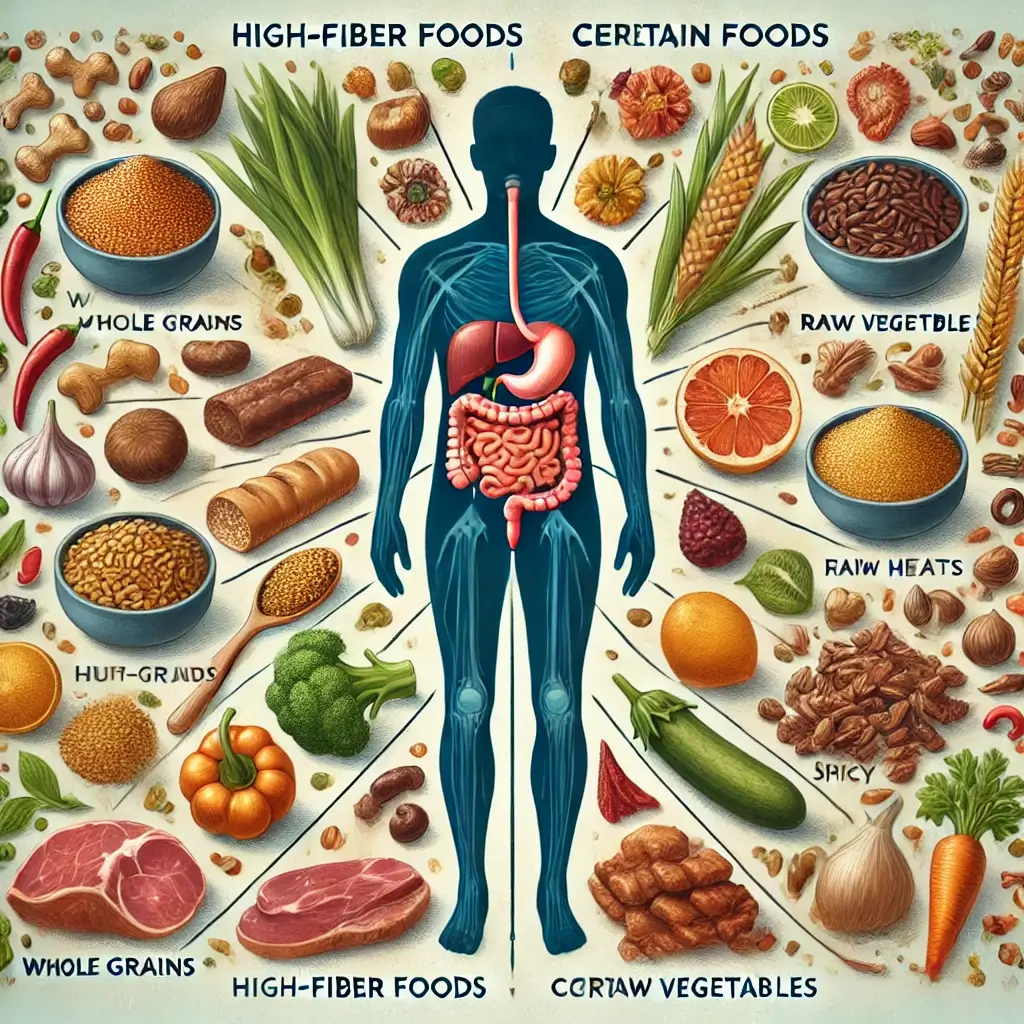High-Fiber Foods and Their Impact on Crohn’s Disease
Consuming foods high in fiber might be problematic for certain individuals with Crohn’s disease, particularly during flare-ups. Insoluble fiber from whole grains, raw vegetables, nuts, and seeds can be beneficial for gut health. It aids in forming substantial stools, reducing constipation, and calming an irritated digestive tract. However, sudden increases in fiber consumption could result in temporary discomfort.
The Role of Insoluble Fiber in Digestive Health
Insoluble fiber can significantly calm an irritated digestive tract by gently scraping away accumulation or irritants inside the intestines. It provides a protective barrier for the fragile lining of the digestive tract, which can be particularly helpful for people coping with Crohn’s disease, ulcerative colitis, or irritable bowel syndrome.
Gradual Introduction of Fiber into the Diet
It’s essential to remember that insoluble fiber should be gradually introduced into the diet. This allows the digestive system to acclimate and receive the full benefits of this essential nutritional component. Increasing consumption of whole grains, raw vegetables, nuts, and seeds should be done slowly to avoid temporary discomfort.
The Impact of Greasy Foods on Crohn’s Disease
Foods high in fat and grease, such as fried foods, processed foods, and fatty meats, are traditionally difficult to digest. They can place a burden on the digestive system and make symptoms of Crohn’s disease worse, including abdominal cramps, pain, diarrhea, nausea, and vomiting.
Spicy Foods and Their Effect on Crohn’s Disease
Consuming spicy foods can aggravate the inflammation that occurs in the lining of the digestive tract in those who have Crohn’s disease. This can result in symptoms such as abdominal cramps, pain, diarrhea, and burning sensations.
Dietary Recommendations for Managing Crohn’s Disease
During flare-ups, physicians may recommend a low-residue diet emphasizing easy-to-digest meals. This includes lean protein sources, refined carbs, and cooked and peeled fruits and vegetables. Keeping a food diary can help identify specific triggers, and collaborating with a dietitian or doctor can assist in developing a safe and effective meal plan.
Personalized Approach to Crohn’s Disease Management
It’s important to remember that the diet recommended for those with Crohn’s disease is not universally applicable. What is successful for one individual might not be appropriate for another. Maintaining open communication with your physician is crucial for effective management of Crohn’s disease and making personalized nutritional adjustments.
